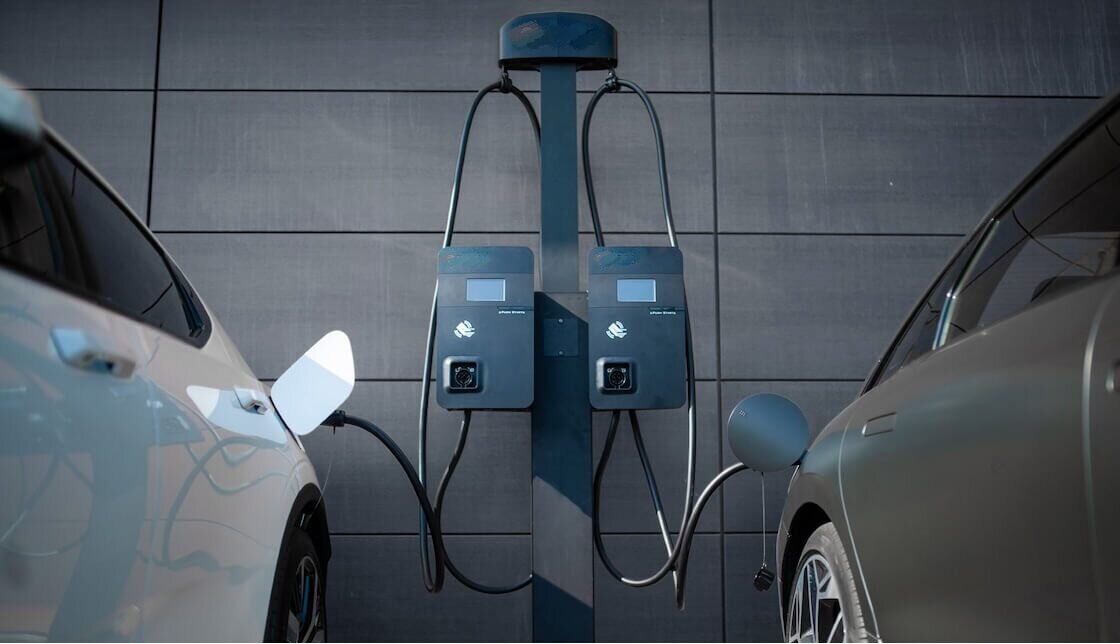As the adoption of electric vehicles (EVs) continues to surge, the need for reliable and accessible charging infrastructure has become more critical than ever. However, the high costs and complexities associated with installing and maintaining EV charging stations can be a significant barrier for many businesses and property owners. Enter EV Charging as a Service (EV CaaS), a revolutionary solution that simplifies the process of deploying EV charging infrastructure. This article delves into what EV CaaS is, the types of EV chargers available, the benefits of adopting this model, and how to evaluate the right CaaS offering for your property.

EV Charging as a Service (EV CaaS) is a turnkey solution that provides businesses and property owners with everything they need to offer EV charging without the upfront costs and operational hassles. Under a predictable monthly payment model, EV CaaS covers the entire lifecycle of EV charging infrastructure, including equipment, installation, software, maintenance, and driver support. This allows property owners to enjoy the benefits of EV charging stations while leaving the technical and operational complexities to experienced service providers like EV Connect.
EV CaaS is particularly appealing for businesses that want to future-proof their properties, attract EV-driving customers or employees, and contribute to sustainability goals without the burden of significant capital investment. By outsourcing the management of EV charging infrastructure, property owners can focus on their core operations while providing a valuable amenity to their stakeholders.
Choosing the right type of EV charger is crucial to meeting the needs of your users and ensuring efficient operations. There are three main types of EV chargers, each with its own advantages and limitations:
Level 1 chargers are the most basic type of EV charger and typically come standard with the purchase of an electric vehicle. These chargers plug into a standard 120-volt wall outlet, making them easy to use in residential settings. However, Level 1 chargers are the slowest option, taking between 40 to 50 hours to fully charge an EV from empty. This makes them impractical for commercial or fleet applications where faster charging is essential.
Level 2 chargers are the most common type of EV charger used in public and commercial settings. These chargers operate on a 240-volt power supply and can charge an EV at a rate of about 100 miles every 8 hours. While significantly faster than Level 1 chargers, Level 2 chargers may still not meet the demands of high-traffic locations or fleet operations. However, they are a cost-effective and reliable option for workplaces, multifamily housing, and retail locations.
Level 3 chargers, also known as DC fast chargers, are the fastest option available, capable of charging an EV to 80% in as little as 20 to 30 minutes. These chargers are ideal for high-traffic areas, such as highways, fleet depots, and busy commercial districts. However, the installation of Level 3 chargers is complex and costly, often requiring significant upgrades to electrical infrastructure, permitting, and construction. Installation costs can exceed $120,000, and the process can take up to 18 months. Despite these challenges, DC fast chargers are essential for supporting long-distance travel and meeting the needs of commercial fleets.
One of the most significant advantages of EV CaaS is the elimination of upfront capital expenses. Property owners can deploy EV charging infrastructure without the need for a large initial investment, making it easier to adopt this technology.
EV CaaS operates on a subscription-based model, providing property owners with predictable monthly payments. This makes it easier to budget for EV charging infrastructure and avoid unexpected costs.
With EV CaaS, service providers handle all aspects of the charging infrastructure, including installation, maintenance, software updates, and driver support. This ensures that the charging stations remain operational and efficient at all times.
Installing EV charging stations can increase the value of a property by attracting EV-driving customers, tenants, or employees. It also demonstrates a commitment to sustainability, which can enhance a property’s reputation.
Many EV CaaS agreements allow property owners to retain revenue generated from charging fees. This creates an additional income stream while providing a valuable service to users.
EV CaaS offers the flexibility to scale charging infrastructure as demand grows. Property owners can start with a few chargers and expand their network over time without significant financial or operational burdens.
Choosing the right EV CaaS provider is critical to ensuring a successful deployment. Here are some key factors to consider when evaluating CaaS offerings:
Compare the upfront costs of purchasing and installing EV charging infrastructure with the ongoing costs of a CaaS agreement. While CaaS may involve higher long-term costs, it eliminates the need for a large initial investment and provides predictable monthly payments.
Ensure that your CaaS agreement allows you to retain revenue generated from charging fees. This can help offset the costs of the service and provide an additional income stream.
Opt for a CaaS provider that offers shorter, more flexible contract terms. This allows you to adapt to changing needs and technologies without being locked into a long-term agreement.
Your CaaS agreement should include maintenance, service, and support to ensure that your charging stations remain operational and efficient. Look for providers that offer 24/7 customer support and regular software updates.
Choose a CaaS provider with a proven track record in deploying and managing EV charging infrastructure. Experienced providers will have the expertise to handle technical challenges and ensure a smooth installation process.
EV Charging as a Service (EV CaaS) is transforming the way businesses and property owners approach EV charging infrastructure. By offering a turnkey solution that covers equipment, installation, maintenance, and support, EV CaaS eliminates the barriers to entry and makes it easier than ever to deploy charging stations. Whether you’re a business owner looking to attract EV-driving customers or a property manager aiming to enhance sustainability, EV CaaS provides a cost-effective and scalable solution. As the demand for EV charging continues to grow, adopting EV CaaS can position your property as a leader in the transition to sustainable mobility.
